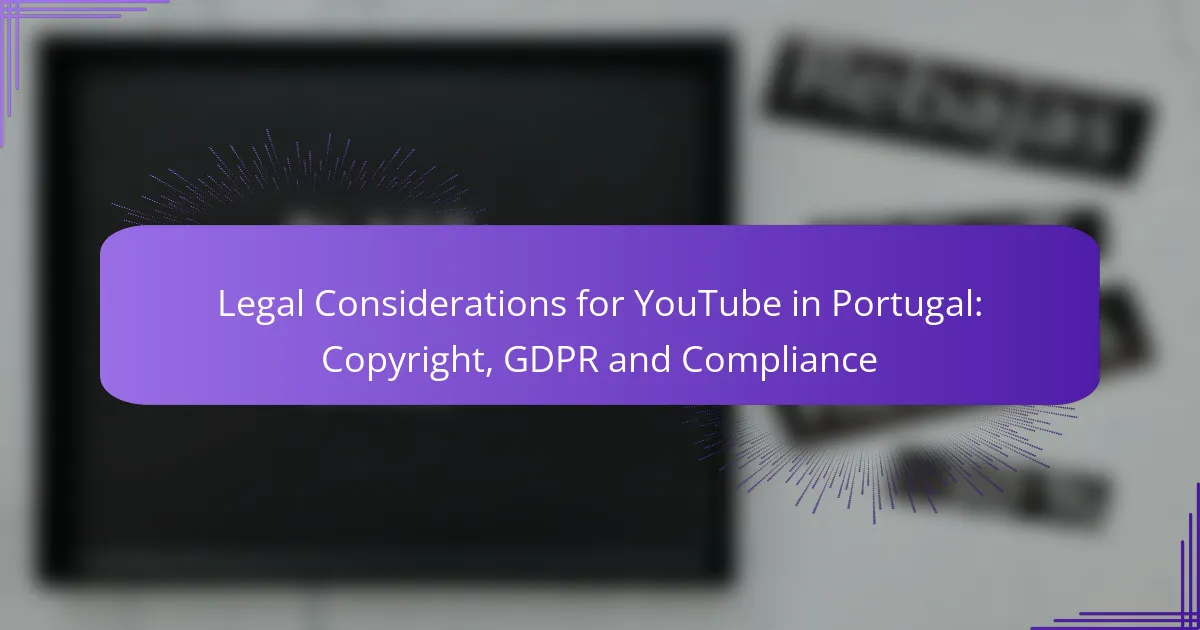Understanding the legal landscape for YouTube in Portugal is crucial for content creators, as they must navigate copyright issues and comply with both national and EU regulations. Key considerations include protecting intellectual property rights and adhering to the General Data Protection Regulation (GDPR), which governs data handling and user privacy. By implementing compliance measures that align with local laws, creators can operate legally while safeguarding user rights and maintaining the integrity of their channels.
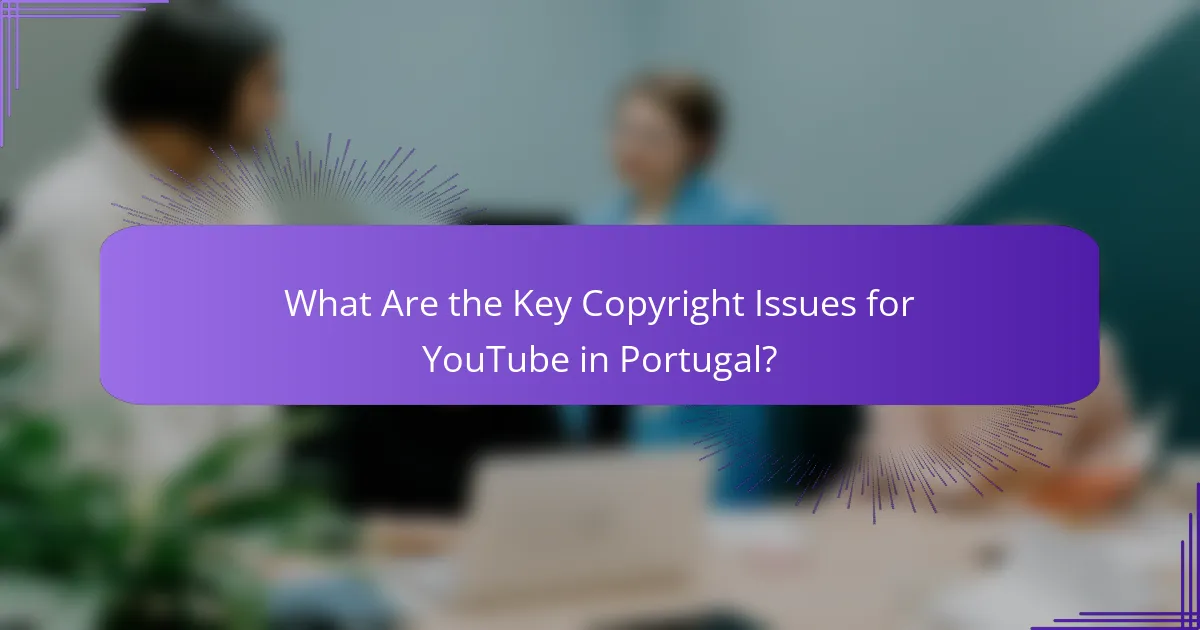
What Are the Key Copyright Issues for YouTube in Portugal?
Key copyright issues for YouTube in Portugal revolve around the protection of intellectual property rights and the potential for infringement. Content creators must navigate local laws while ensuring compliance with both national and EU regulations.
Copyright infringement risks
Copyright infringement risks on YouTube in Portugal include unauthorised use of music, videos, and images. Creators may face legal action if they upload content that violates copyright laws, which can result in takedown notices or channel strikes.
To mitigate these risks, it’s essential to obtain proper licences for any copyrighted material used in videos. This includes music tracks, video clips, and images that are not original or in the public domain.
Fair use exceptions
Fair use exceptions in Portugal are limited compared to some other jurisdictions. While there are provisions for criticism, comment, news reporting, teaching, and research, these exceptions do not always apply to online content like YouTube videos.
Creators should be cautious when relying on fair use, as the interpretation can be subjective. It’s advisable to seek legal advice if unsure whether a specific use qualifies as fair use under Portuguese law.
Content ID system
YouTube’s Content ID system helps copyright holders manage their content on the platform. This automated system scans uploaded videos against a database of copyrighted materials and can automatically block or monetise infringing content.
In Portugal, creators can benefit from Content ID by ensuring their original works are registered. This can provide a layer of protection against unauthorised use and help in monetising their content effectively.
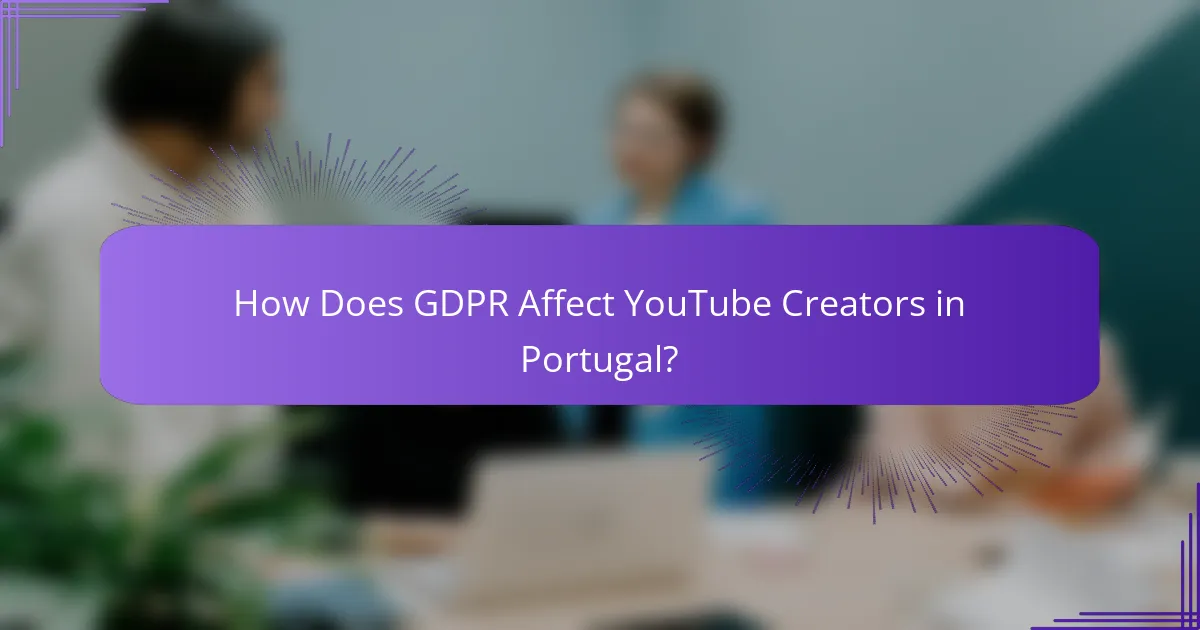
How Does GDPR Affect YouTube Creators in Portugal?
The General Data Protection Regulation (GDPR) significantly impacts YouTube creators in Portugal by imposing strict rules on data handling and user privacy. Creators must ensure compliance with these regulations to avoid penalties and maintain user trust.
Data protection requirements
YouTube creators in Portugal must adhere to GDPR’s data protection requirements, which include ensuring that personal data is processed lawfully, transparently, and for specific purposes. This means creators should only collect data necessary for their content and avoid excessive data gathering.
Additionally, creators should implement appropriate technical and organisational measures to protect user data from breaches. This can include using encryption and secure storage solutions to safeguard personal information.
User consent protocols
Obtaining user consent is a critical aspect of GDPR compliance for YouTube creators. Consent must be explicit, informed, and freely given, meaning users should understand what data is being collected and how it will be used. Creators should provide clear options for users to consent to data collection.
It is advisable to use checkboxes or similar mechanisms that require active participation from users rather than pre-checked options. Regularly reviewing and updating consent practices can help ensure ongoing compliance.
Privacy policy obligations
YouTube creators are required to have a clear and accessible privacy policy that outlines how they collect, use, and protect personal data. This policy should be easily available to users, ideally linked in video descriptions or channel information.
The privacy policy must include details about the types of data collected, the purpose of data processing, and users’ rights regarding their data. Regularly updating the privacy policy to reflect any changes in data practices is essential for maintaining transparency and compliance.
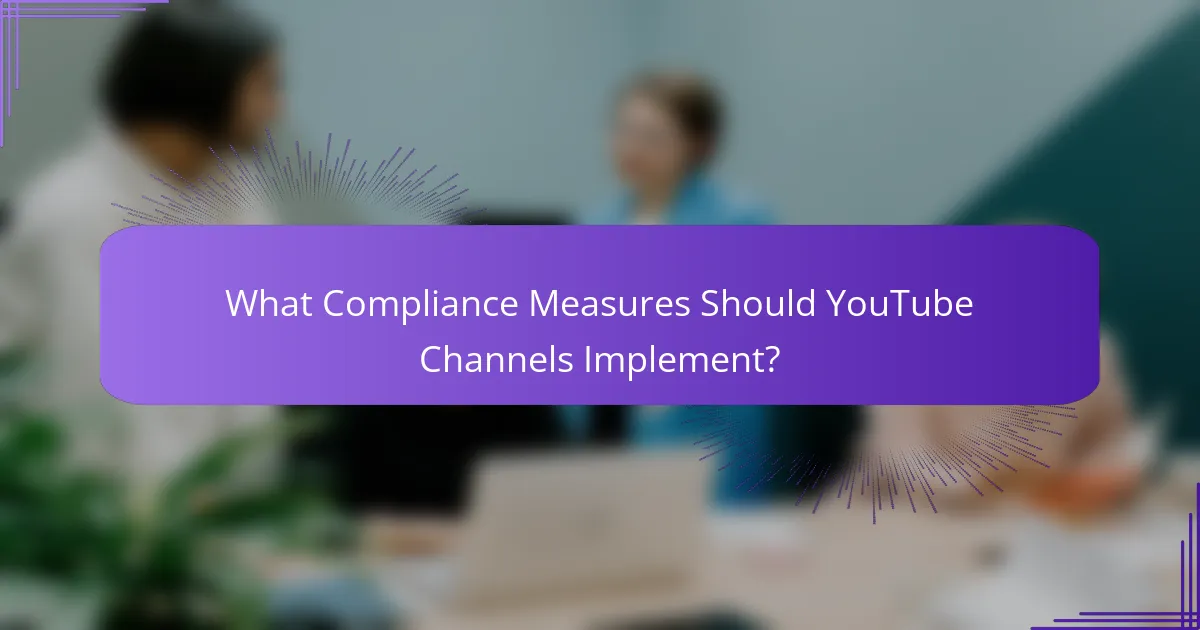
What Compliance Measures Should YouTube Channels Implement?
YouTube channels must adopt compliance measures that align with local laws, particularly concerning copyright, data protection, and content moderation. This ensures that channels operate legally while protecting user rights and maintaining platform integrity.
Content moderation strategies
Effective content moderation strategies are essential for YouTube channels to comply with regulations and community standards. Channels should implement a combination of automated tools and human review processes to monitor uploaded content for violations such as hate speech, misinformation, or copyright infringement.
Consider using keyword filters, machine learning algorithms, and community flagging systems to identify problematic content quickly. Regular training for moderators on current laws and platform policies can enhance the effectiveness of these strategies.
Age restrictions and content ratings
YouTube channels must apply appropriate age restrictions and content ratings to ensure compliance with local regulations, such as the GDPR in Portugal. This involves categorising content based on its suitability for different age groups and providing clear warnings for mature themes.
Channels should utilise YouTube’s built-in age restriction features and consider additional labelling for sensitive content. Regularly reviewing and updating these ratings based on viewer feedback and changing regulations is crucial for maintaining compliance.
Reporting mechanisms
Establishing clear reporting mechanisms is vital for YouTube channels to address violations and user concerns effectively. Channels should provide easy access for viewers to report inappropriate content or copyright infringements, ensuring that these reports are handled promptly and transparently.
Consider creating a dedicated section on your channel for reporting issues, along with guidelines on how to report effectively. Regularly review reported content and communicate outcomes to maintain trust and accountability within the community.
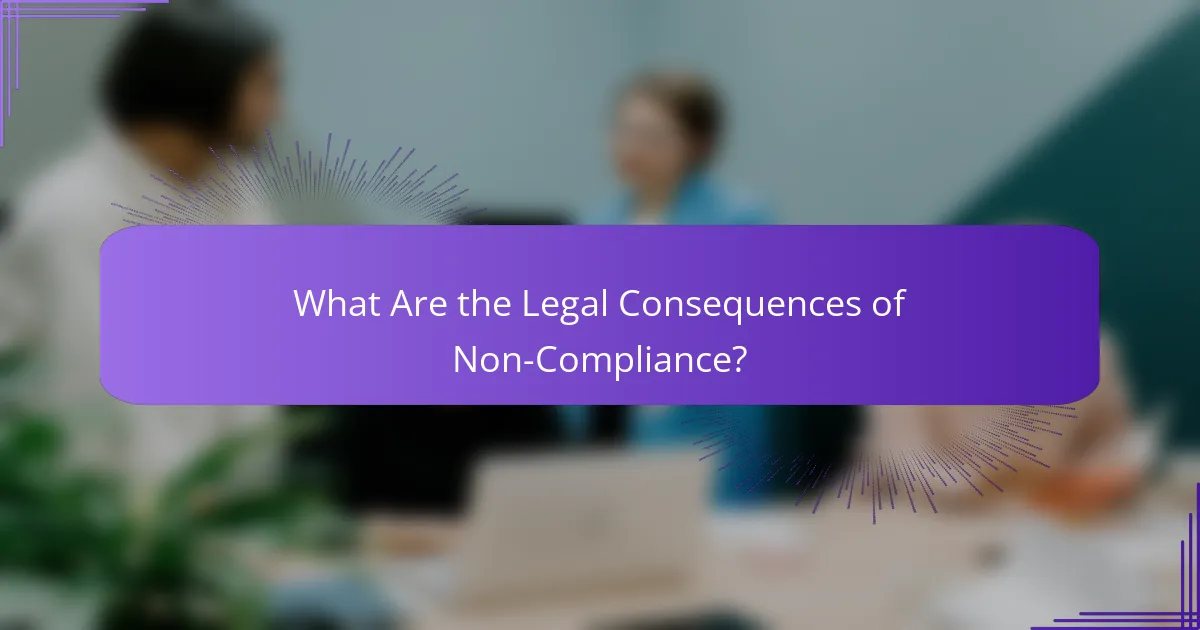
What Are the Legal Consequences of Non-Compliance?
Non-compliance with legal requirements on YouTube in Portugal can lead to significant consequences, including financial penalties, channel suspensions, and legal disputes. Understanding these risks is crucial for content creators to maintain their online presence and avoid costly repercussions.
Fines and penalties
In Portugal, fines for copyright infringement or GDPR violations can vary widely, potentially reaching thousands of euros. The severity of the penalty often depends on the nature of the violation, whether it is a repeat offence, and the financial impact on the affected parties.
For instance, failing to obtain proper licences for copyrighted material can result in fines that may range from hundreds to several thousand euros. It’s essential to stay informed about the specific regulations applicable to your content to avoid these financial burdens.
Channel suspension risks
YouTube may suspend channels that repeatedly violate copyright laws or fail to comply with GDPR regulations. A suspension can occur after multiple strikes for copyright infringement, which can lead to a complete loss of access to your channel and its content.
To mitigate this risk, creators should regularly review YouTube’s community guidelines and copyright policies. Implementing best practices, such as using royalty-free music and obtaining necessary permissions, can help maintain compliance and protect your channel from suspension.
Legal disputes and litigation
Non-compliance can lead to legal disputes with copyright holders or regulatory authorities, resulting in costly litigation. Such disputes may arise from unauthorised use of copyrighted material or failure to adhere to data protection laws under GDPR.
To avoid legal challenges, it is advisable to consult with legal professionals who specialise in intellectual property and digital media. Establishing clear contracts and agreements with collaborators can also help prevent misunderstandings and protect against potential lawsuits.
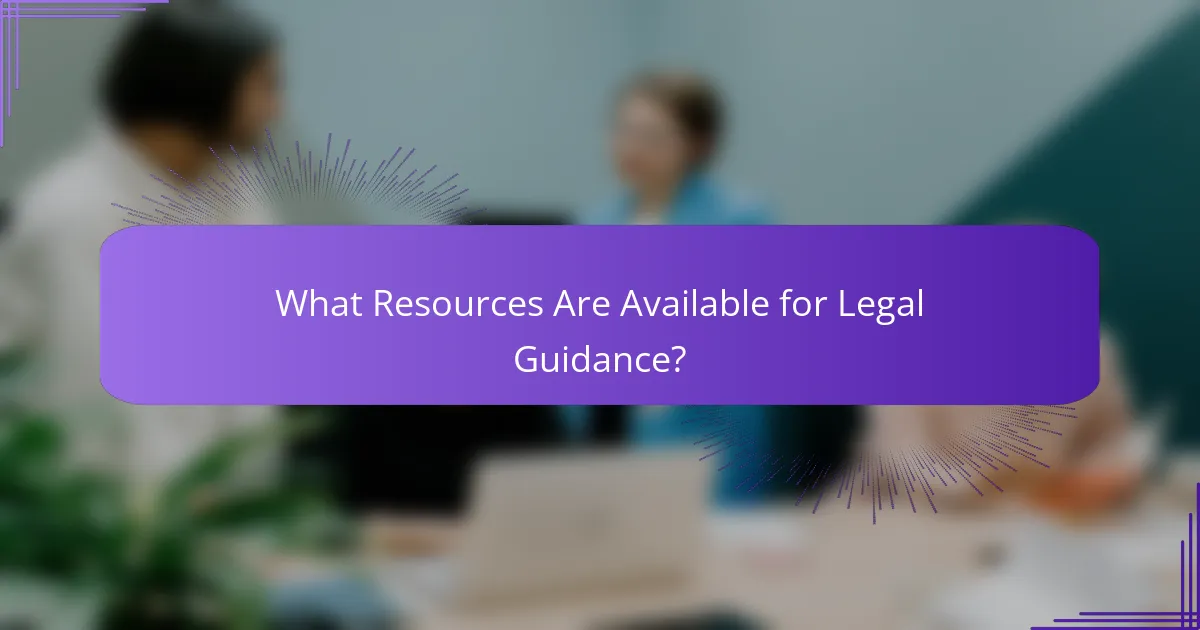
What Resources Are Available for Legal Guidance?
In Portugal, various resources are available for legal guidance related to YouTube, focusing on copyright, GDPR compliance, and other legal considerations. These resources include professional consultancy services, online platforms, and official government guidelines that can help content creators navigate the legal landscape effectively.
Legal consultancy services
Legal consultancy services in Portugal can provide tailored advice for YouTube content creators. These professionals specialise in copyright law, data protection, and compliance, ensuring that creators understand their rights and obligations. Engaging a legal consultant can help avoid potential pitfalls and costly legal disputes.
When selecting a legal consultant, consider their experience with digital media and familiarity with Portuguese laws. Fees can vary widely, so it’s advisable to discuss costs upfront and understand the scope of services offered.
Online legal resources
Numerous online legal resources are available for YouTube creators in Portugal. Websites like the European Union Intellectual Property Office (EUIPO) and the Portuguese Data Protection Authority (CNPD) offer valuable information on copyright and GDPR regulations. These platforms often provide guides, FAQs, and templates that can assist creators in compliance.
Additionally, legal blogs and forums can be useful for staying updated on changes in laws and best practices. However, always verify the credibility of the sources and consider consulting a professional for complex issues.
Government guidelines
The Portuguese government provides guidelines that are crucial for YouTube creators. The CNPD outlines the requirements for data protection under GDPR, which is essential for any content creator handling personal data. Familiarising yourself with these guidelines can help ensure compliance and protect your channel from legal issues.
Moreover, the Directorate-General for Copyright (DGC) offers resources on copyright laws specific to digital content. These guidelines help creators understand what constitutes fair use and how to properly attribute content, which is vital for avoiding copyright infringement.
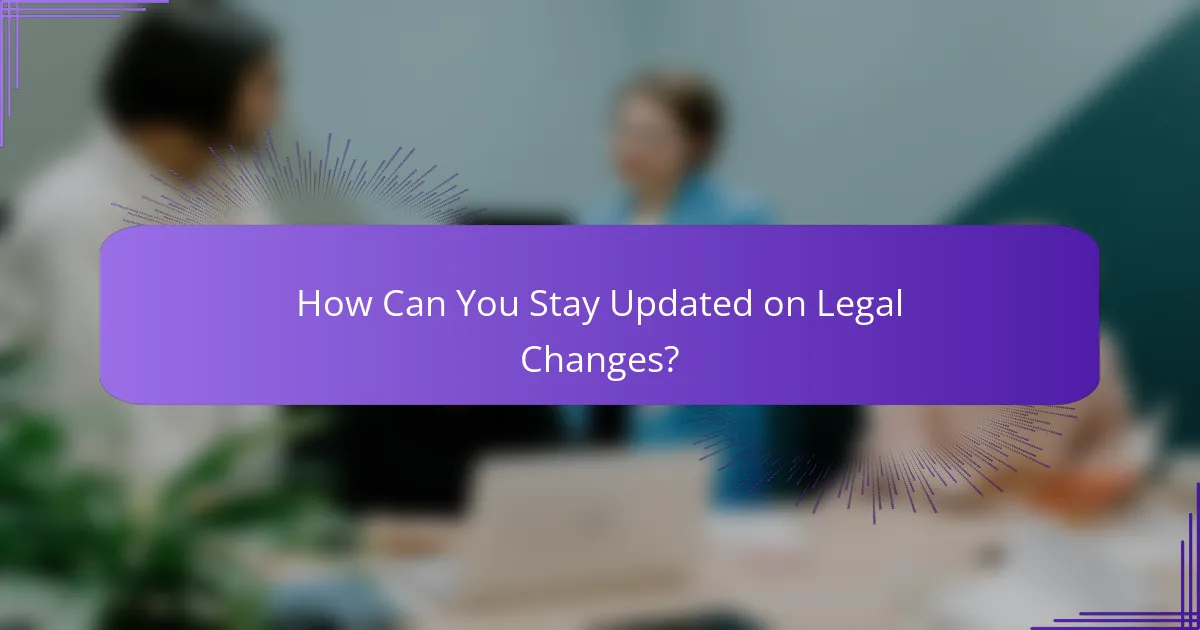
How Can You Stay Updated on Legal Changes?
To stay updated on legal changes affecting YouTube in Portugal, regularly check reliable sources of legal information. This includes monitoring news platforms that specialise in copyright, data protection, and compliance regulations.
Follow legal news platforms
Legal news platforms provide timely updates on changes in laws and regulations that impact content creators on YouTube. Subscribing to newsletters or following these platforms on social media can help you stay informed about relevant legal developments.
Some notable platforms include Lexology, which offers insights into various legal topics, and Legal Week, focusing on the latest legal news. These resources often cover issues like copyright updates and GDPR compliance.
Consider setting up Google Alerts for specific keywords related to YouTube, copyright, and GDPR in Portugal. This way, you will receive notifications whenever new content is published, ensuring you are always aware of important changes.
